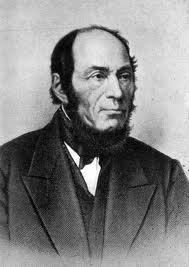Thomas Smith Williamson
Thomas Smith Williamson (March 1, 1800 – July 24, 1879) was a prominent figure in the history of medicine and missionary work among the Native American populations in the United States during the 19th century. He is best known for his role as a physician, educator, and Presbyterian missionary. Williamson's work, particularly in the Minnesota region, has left a lasting impact on the communities he served and the fields of healthcare and education within Native American societies.
Early Life and Education[edit | edit source]
Thomas Smith Williamson was born in South Carolina but moved to Ohio with his family during his childhood. He pursued his education with a keen interest in medicine, graduating from Jefferson Medical College in Philadelphia, Pennsylvania. His early career was marked by a strong commitment to both his medical practice and his religious faith, which eventually led him to join the American Board of Commissioners for Foreign Missions.
Missionary Work[edit | edit source]
In 1834, Williamson was appointed as a missionary to the Dakota (Sioux) people in what is now Minnesota. He established the Lac qui Parle mission, where he combined his medical knowledge with his religious teachings. Williamson was instrumental in translating religious texts into the Dakota language, significantly contributing to the literacy and education of the Dakota people. His efforts in healthcare were equally notable; he provided medical treatments to the Native American communities, often integrating his medical practice with his missionary work.
Contributions to Medicine and Education[edit | edit source]
Williamson's contributions to medicine were not limited to his missionary work. He was known for his efforts to improve public health among the Native American populations, advocating for better living conditions and hygiene practices. His work in education extended beyond religious teachings; he was involved in establishing schools and promoting education within the communities he served. Williamson's legacy in the fields of medicine and education is marked by his holistic approach to healthcare and his respect for the cultural traditions of the Native American people.
Later Life and Legacy[edit | edit source]
Thomas Smith Williamson spent the latter part of his life continuing his missionary and medical work among the Dakota people. He witnessed significant historical events, including the U.S.-Dakota War of 1862, which deeply affected the communities he served. Williamson's dedication to his work remained unwavering until his death in 1879.
His legacy is remembered for the bridges he built between different cultures, his contributions to the healthcare and education of Native American communities, and his pioneering role in the integration of medical practice with missionary work.
See Also[edit | edit source]
Search WikiMD
Ad.Tired of being Overweight? Try W8MD's physician weight loss program.
Semaglutide (Ozempic / Wegovy and Tirzepatide (Mounjaro / Zepbound) available.
Advertise on WikiMD
|
WikiMD's Wellness Encyclopedia |
| Let Food Be Thy Medicine Medicine Thy Food - Hippocrates |
Translate this page: - East Asian
中文,
日本,
한국어,
South Asian
हिन्दी,
தமிழ்,
తెలుగు,
Urdu,
ಕನ್ನಡ,
Southeast Asian
Indonesian,
Vietnamese,
Thai,
မြန်မာဘာသာ,
বাংলা
European
español,
Deutsch,
français,
Greek,
português do Brasil,
polski,
română,
русский,
Nederlands,
norsk,
svenska,
suomi,
Italian
Middle Eastern & African
عربى,
Turkish,
Persian,
Hebrew,
Afrikaans,
isiZulu,
Kiswahili,
Other
Bulgarian,
Hungarian,
Czech,
Swedish,
മലയാളം,
मराठी,
ਪੰਜਾਬੀ,
ગુજરાતી,
Portuguese,
Ukrainian
Medical Disclaimer: WikiMD is not a substitute for professional medical advice. The information on WikiMD is provided as an information resource only, may be incorrect, outdated or misleading, and is not to be used or relied on for any diagnostic or treatment purposes. Please consult your health care provider before making any healthcare decisions or for guidance about a specific medical condition. WikiMD expressly disclaims responsibility, and shall have no liability, for any damages, loss, injury, or liability whatsoever suffered as a result of your reliance on the information contained in this site. By visiting this site you agree to the foregoing terms and conditions, which may from time to time be changed or supplemented by WikiMD. If you do not agree to the foregoing terms and conditions, you should not enter or use this site. See full disclaimer.
Credits:Most images are courtesy of Wikimedia commons, and templates Wikipedia, licensed under CC BY SA or similar.
Contributors: Prab R. Tumpati, MD

